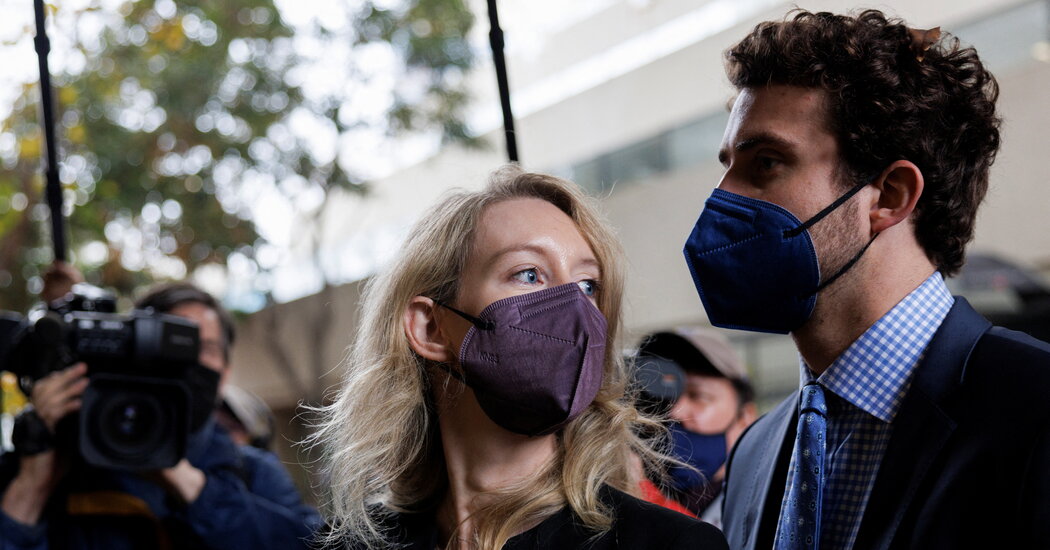SAN JOSE, Calif. — Deliberations in the trial of Elizabeth Holmes, the founder of the blood testing start-up Theranos, are set to stretch into their seventh day on Monday, with jurors offering few clues about how close they may be to a decision.
The jury of eight men and four women has spent over 43 hours so far deliberating whether Ms. Holmes, 37, is guilty of two counts of conspiracy to commit wire fraud and nine counts of wire fraud. Each fraud count carries a maximum sentence of 20 years in prison.
Jurors have asked no questions of the court since Dec. 23, when they asked to listen to audio recordings in which Ms. Holmes allegedly misled investors about Theranos’s business relationships. They also asked to take jury instructions home, which the court denied.
It is not unusual for deliberations in white-collar trials to be lengthy, especially in complex fraud cases in which defendants are charged with multiple counts that span multiple years. In 2007, a jury took 12 days to convict Conrad Black, a press tycoon, of fraud after a 14-week trial that involved 13 counts. Martin Shkreli, the infamous former hedge fund manager, was convicted of securities fraud after five days of deliberations in 2017 following a five-week trial.
In Ms. Holmes’s case, the jury must sift through 14 weeks of testimony and over 900 pieces of evidence as they decide whether Ms. Holmes intentionally deceived investors, patients and advertisers in the pursuit of investments and business for her blood testing start-up. Ms. Holmes founded Theranos in 2003. She dropped out of Stanford in 2004 and spent the next decade raising nearly $1 billion from investors and signing contracts with Walgreens and Safeway.
But The Wall Street Journal revealed in 2015 that Theranos’s blood-testing devices could perform only a dozen tests, contrary to Ms. Holmes’s claims of over 1,000 to investors, business partners and the public. Theranos officially shuttered in 2018 amid scandal.
For many, the saga represents the worst excesses of Silicon Valley’s start-up culture, where founders regularly stretch the truth in search of fortune and fame. Such founders, however, are rarely prosecuted.
Prosecutors called 29 witnesses as they attempted to prove that Ms. Holmes “chose fraud over business failure,” as Jeff Schenk, an assistant U.S. attorney, said during closing arguments.
The defense’s case rested primarily on Ms. Holmes’s own testimony. She said she believed her own claims and pointed fingers at her senior employees, including Ramesh Balwani, her ex-boyfriend and Theranos’s former chief operating officer. Mr. Balwani, who faces identical charges, is scheduled to stand trial beginning in February.
